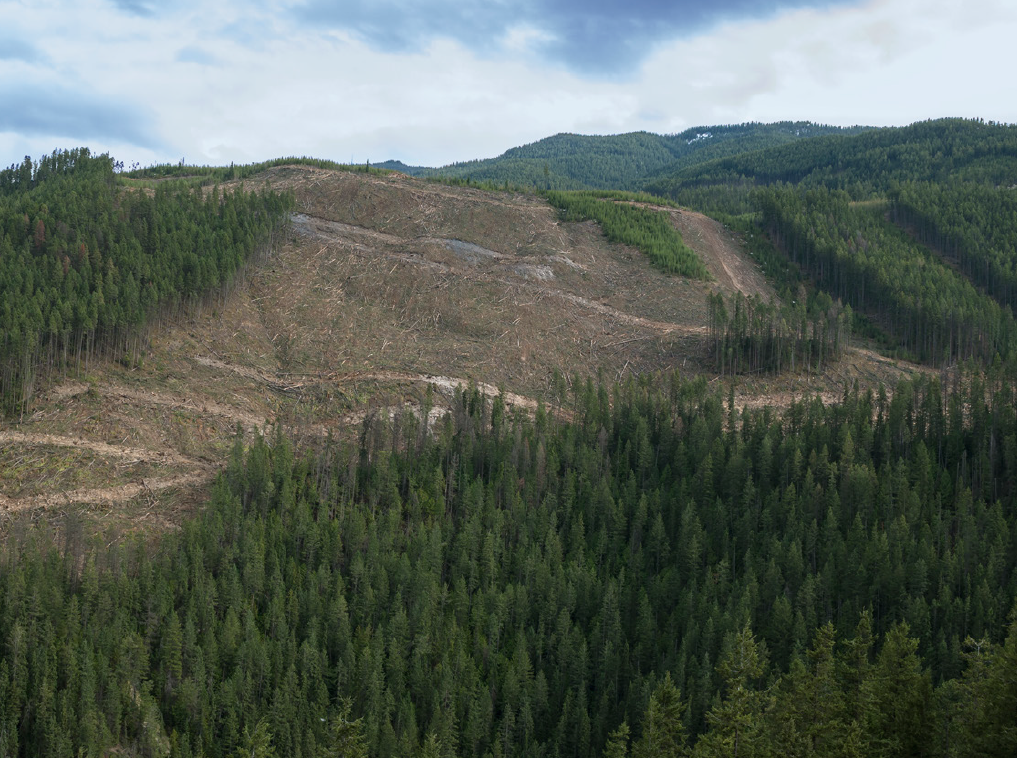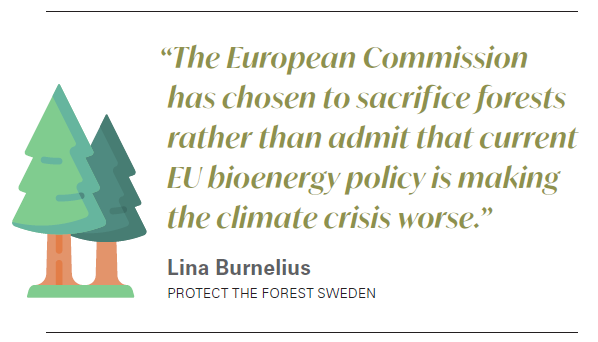From the Editor: The Dirty Secret behind Europe’s climate policy [Gas in Transition]
Bioenergy may well be the dirty secret behind the EU’s climate and renewable energy policies. It seems EU policymakers dare not let go of support for biofuels, for fear of not being able to meet the bloc’s climate targets, despite the protests of hundreds of scientists and environmental groups who are calling for an end to “forest burning”.
The European Commission’s so-called Fit-for-55 proposals, announced on July 14 and part of the prestigious EU Green Deal, continue to allow trees to be burned for power generation, and palm and soy oil to be used for biodiesel.
The proposed revision of the Renewable Energy Directive (RED) does include a proposal to “strengthen sustainability criteria for the use of bioenergy”. It also states that “Member States must design any support schemes for bioenergy in a way that respects the cascading principle of uses for woody biomass”, i.e. they must give priority to “higher value” uses over lower value ones.
But these assurances do not go far enough for those who are concerned about the fate of our forests. “The European Commission has chosen to sacrifice forests rather than admit that current EU bioenergy policy is making the climate crisis worse,” Lina Burnelius of Protect the Forest Sweden told the Guardian.
As the Guardian points out, burning wood releases more carbon into the atmosphere than gas or coal, and “many scientists are sceptical that planting trees to repay the ‘carbon debt’ squares with commitments under the Paris climate agreement”. Earlier this year, more than 500 scientists asked the European Commission to put an end to all subsidies for bioenergy. “Regrowing trees…takes time the world does not have,” they said.
According to Peg Putt of the Environmental Paper Network, EU forests absorb 15% less carbon dioxide than 20 years ago, due to harvesting and clear cuts. In addition, Europe is increasingly relying on imports of biomass. In the current system of carbon accounting, this leaves producing countries to take the responsibility for emissions which are actually taking place in Europe, notes Putt.
In addition to supporting the burning of biomass in power plants, Europe also promotes the use of palm and soy biodiesel in transport. According to a recent study from think tank Transport & Environment (T&E), “it is likely that roughly 4 million hectares of forests [the size of the Netherlands] have been razed, destroying an estimated 10% of the world’s remaining orangutan habitats,” as a result of the EU’s biofuels policy. The Renewable Energy Directive sets a 10% renewable energy target for transport, which has driven up demand for cheap crop-based biodiesel, such as palm and soy oil, mainly sourced from Asia and South America, notes T&E.
Laura Buffet, energy director at T&E, said: “10 years of this ‘green’ fuels law and what have we got to show for it? Rampant deforestation, habitats wiped out and worse emissions than if we had used polluting diesel instead. A policy that was supposed to save the planet is actually trashing it. We cannot afford another decade of this failed policy.”
T&E, whose report was released before the publication of the Fit-for-55 proposals, called on the European Commission to phase out support for crop biofuels, but to no avail.
Although the Commission promises stronger “sustainability criteria” in its bioenergy policies, the problem is that these are easier to put on paper than to put into practice. A comprehensive report from the Commission’s own scientific advisory agency, the Joint Research Centre, released in January 2021, notes that we actually know very little about what is really going on in the forests. “Despite abundance of datasets, large data gaps exist and there is no single data source that would provide a full picture,” says the JRC.
The JRC “stresses” that “the governance of bioenergy sustainability is characterised by uncertainty of consequences, diverging interests, conflicting knowledge claims and high stakes. Scientists dub it ‘a wicked problem’ that cannot be solved by science alone.”
Needless to say, this “wicked” problem is even worse in developing countries that tend to be much more “intransparent” than Europe. It could be simply solved of course – if the EU decided to stop viewing bioenergy as sustainable in the first place. That still seems a cause worth fighting for.



